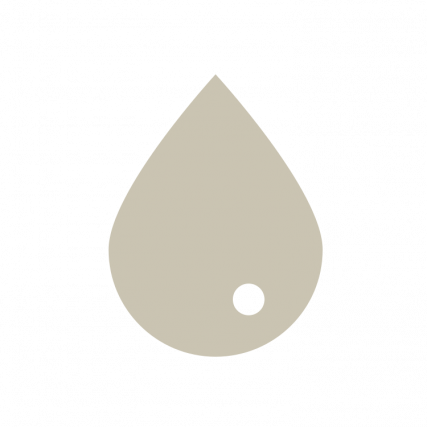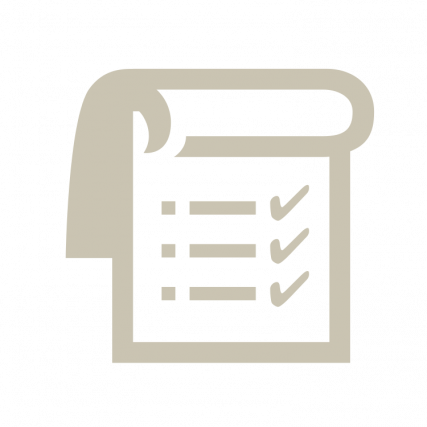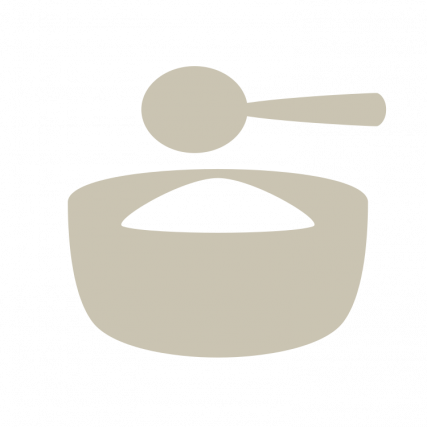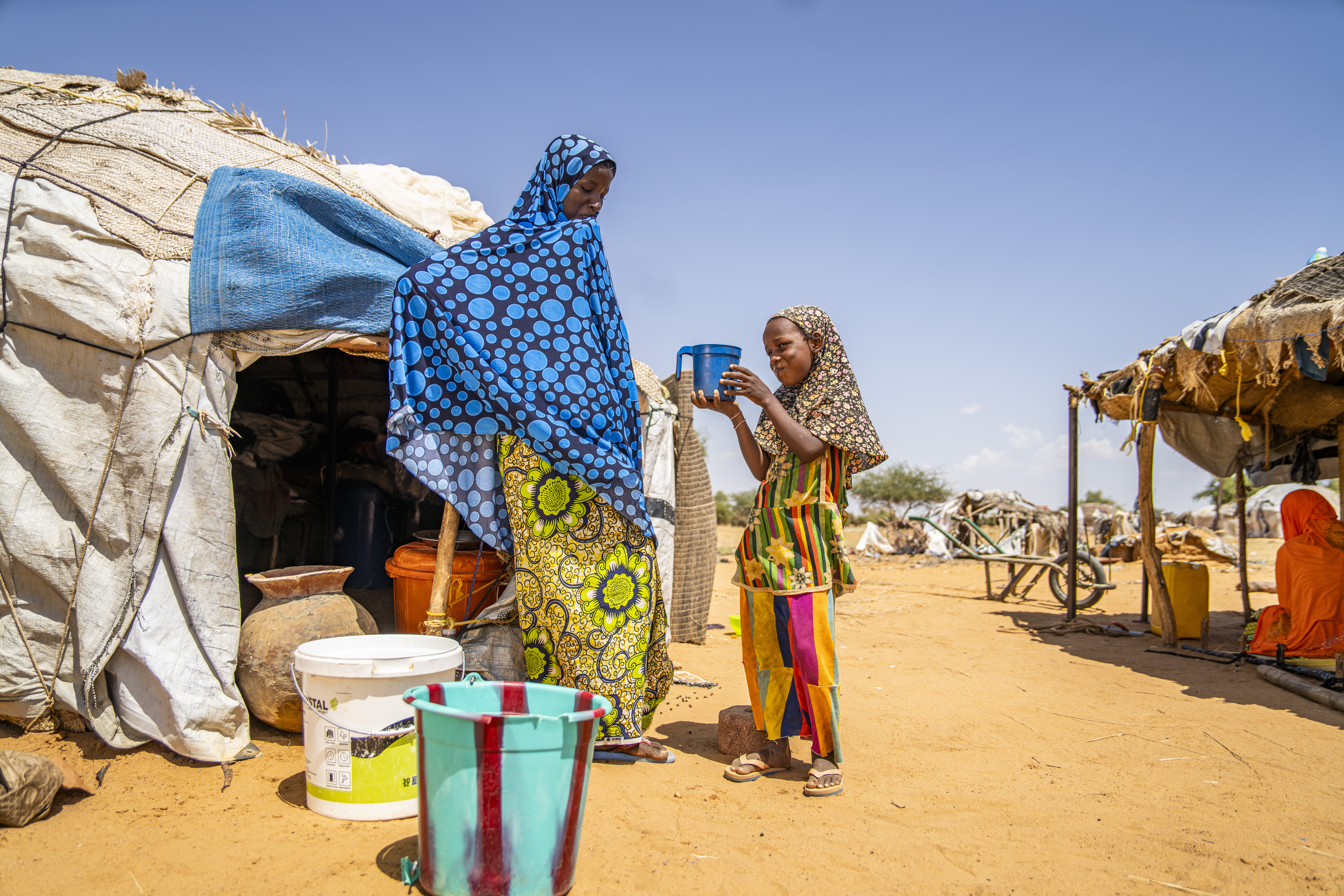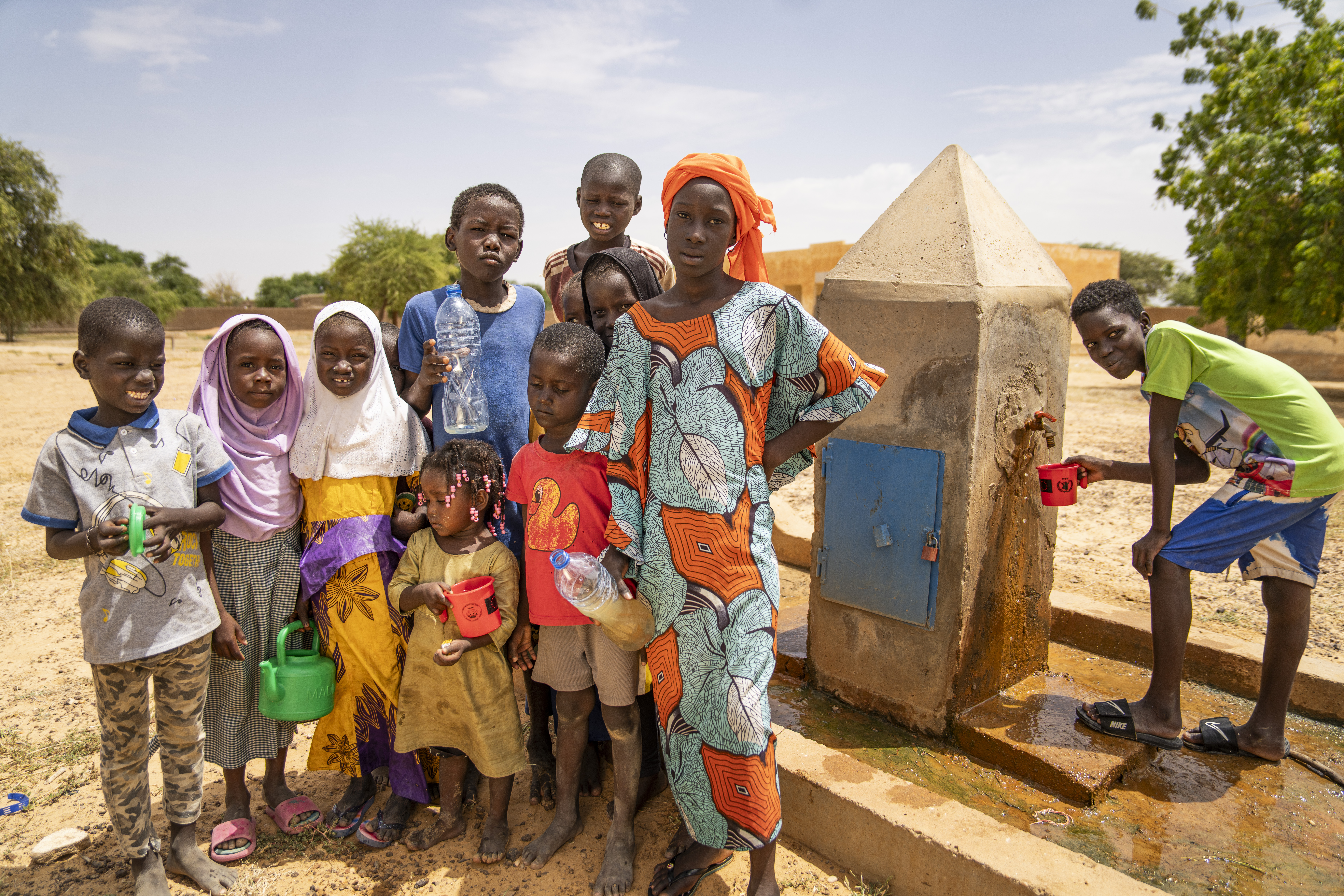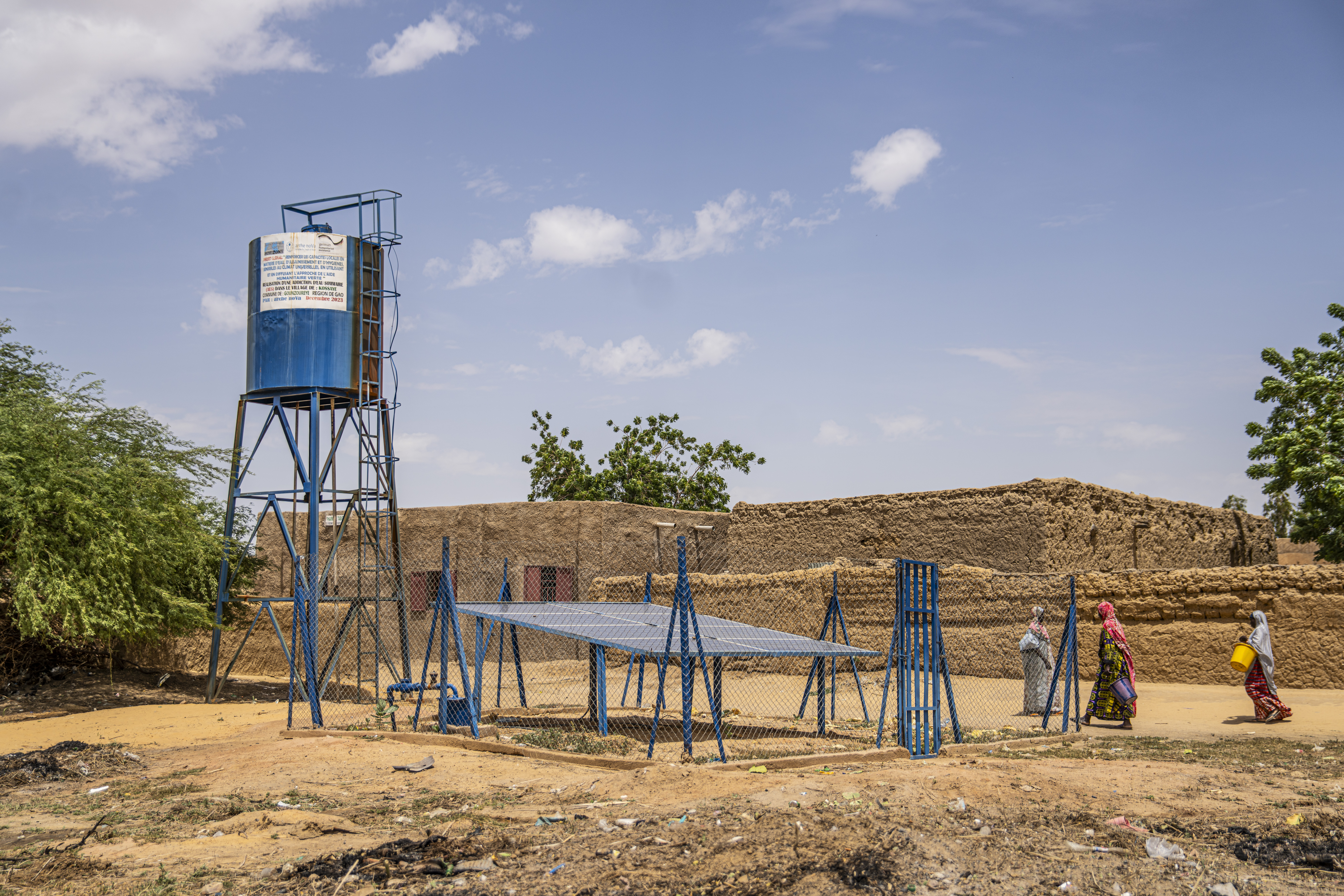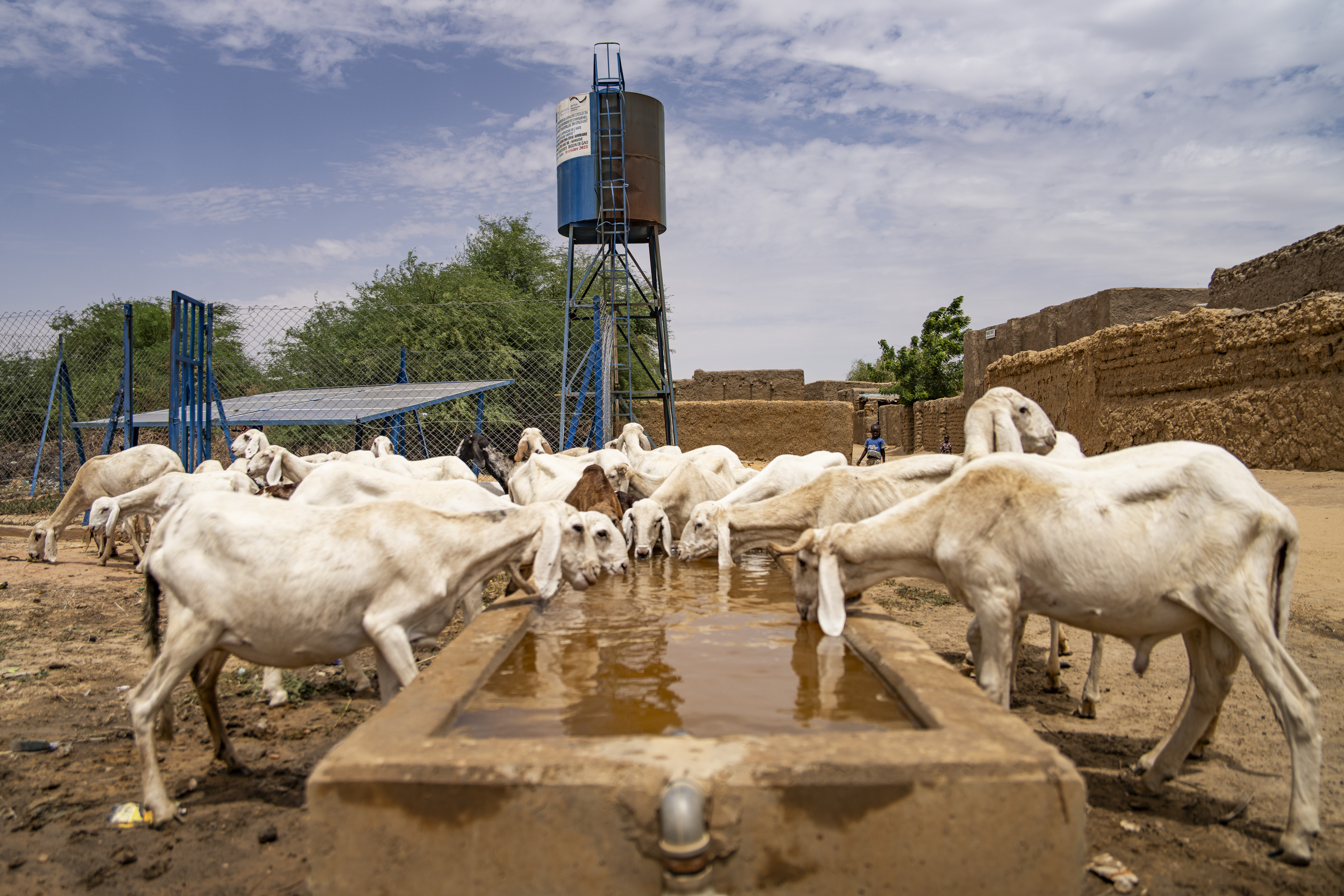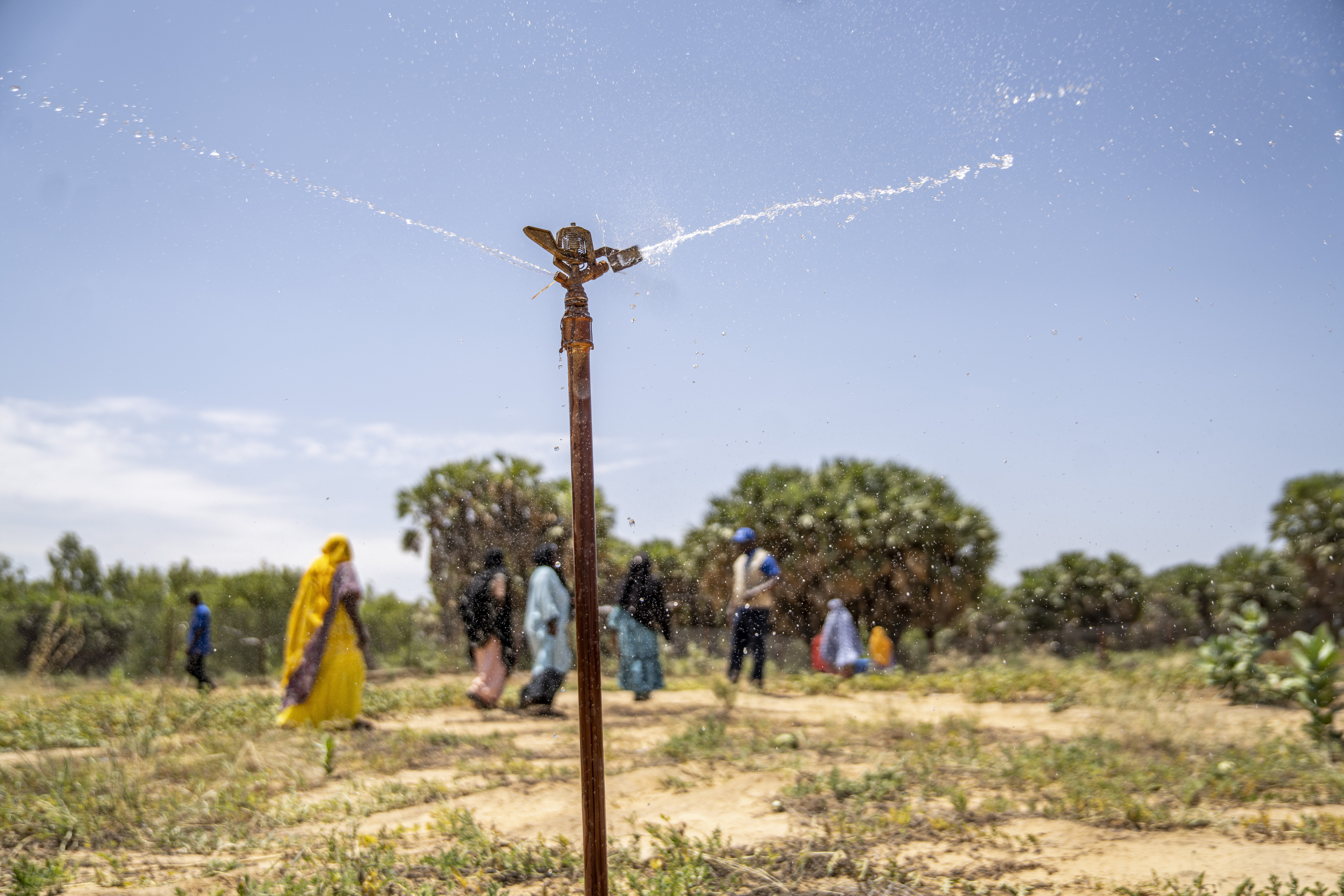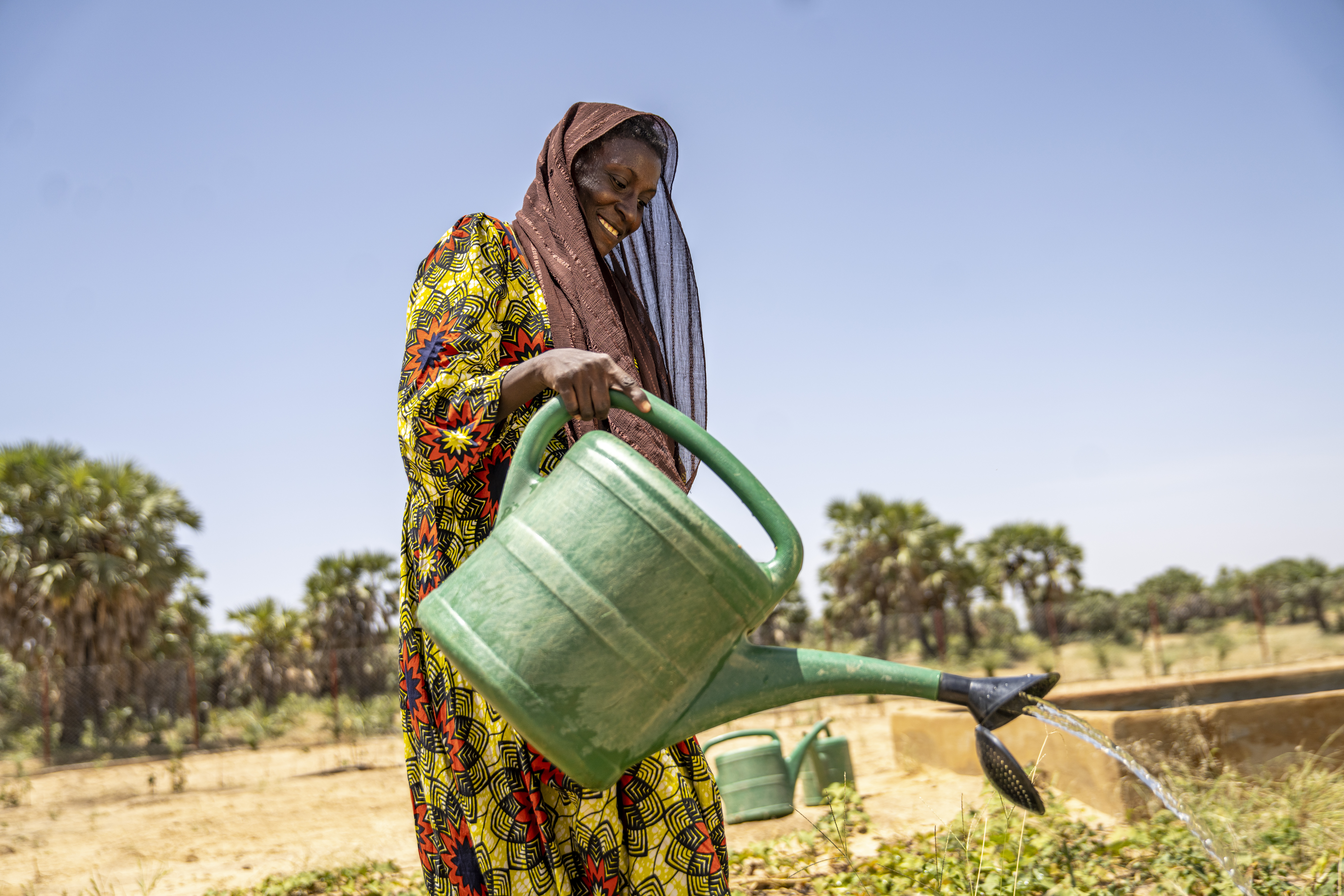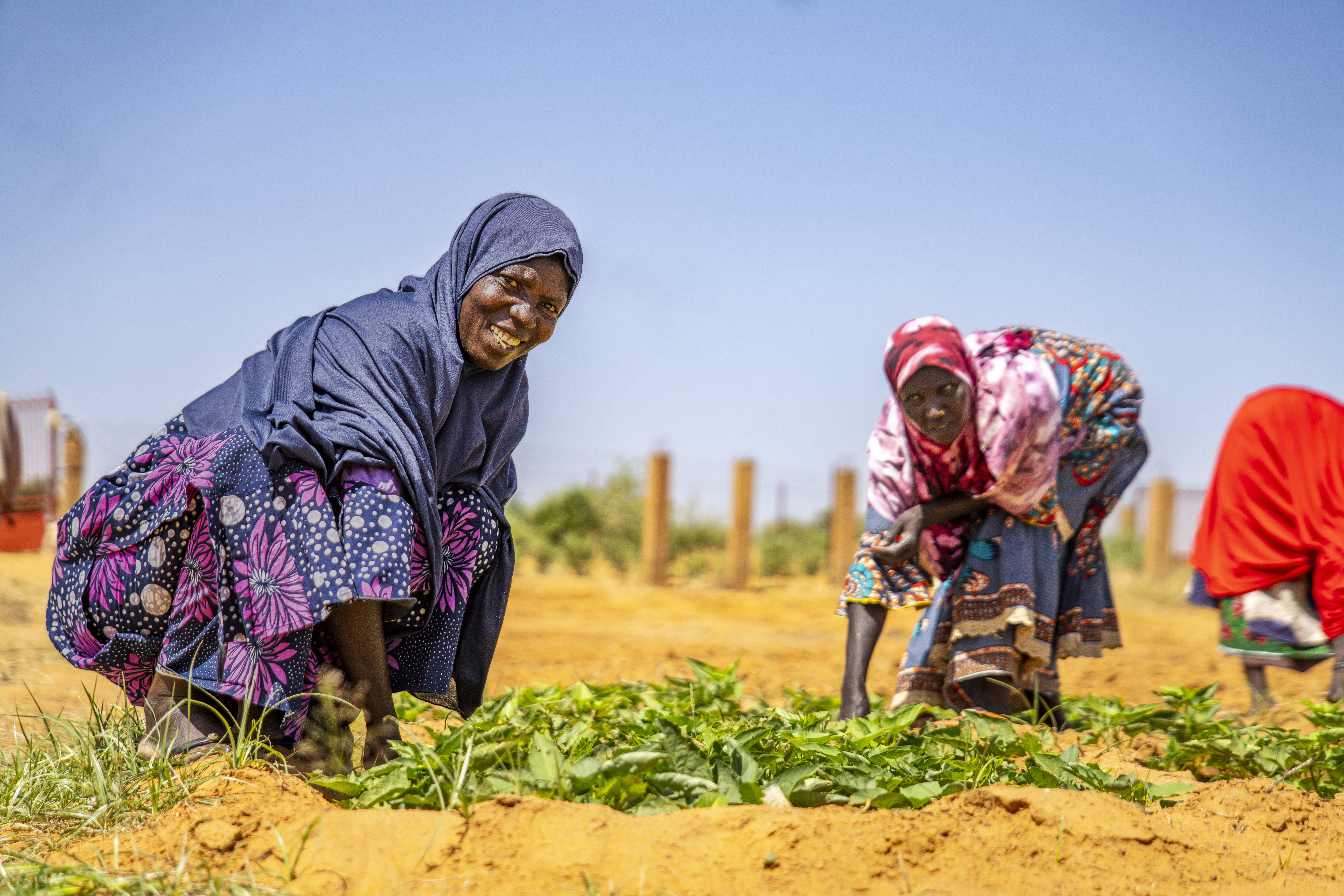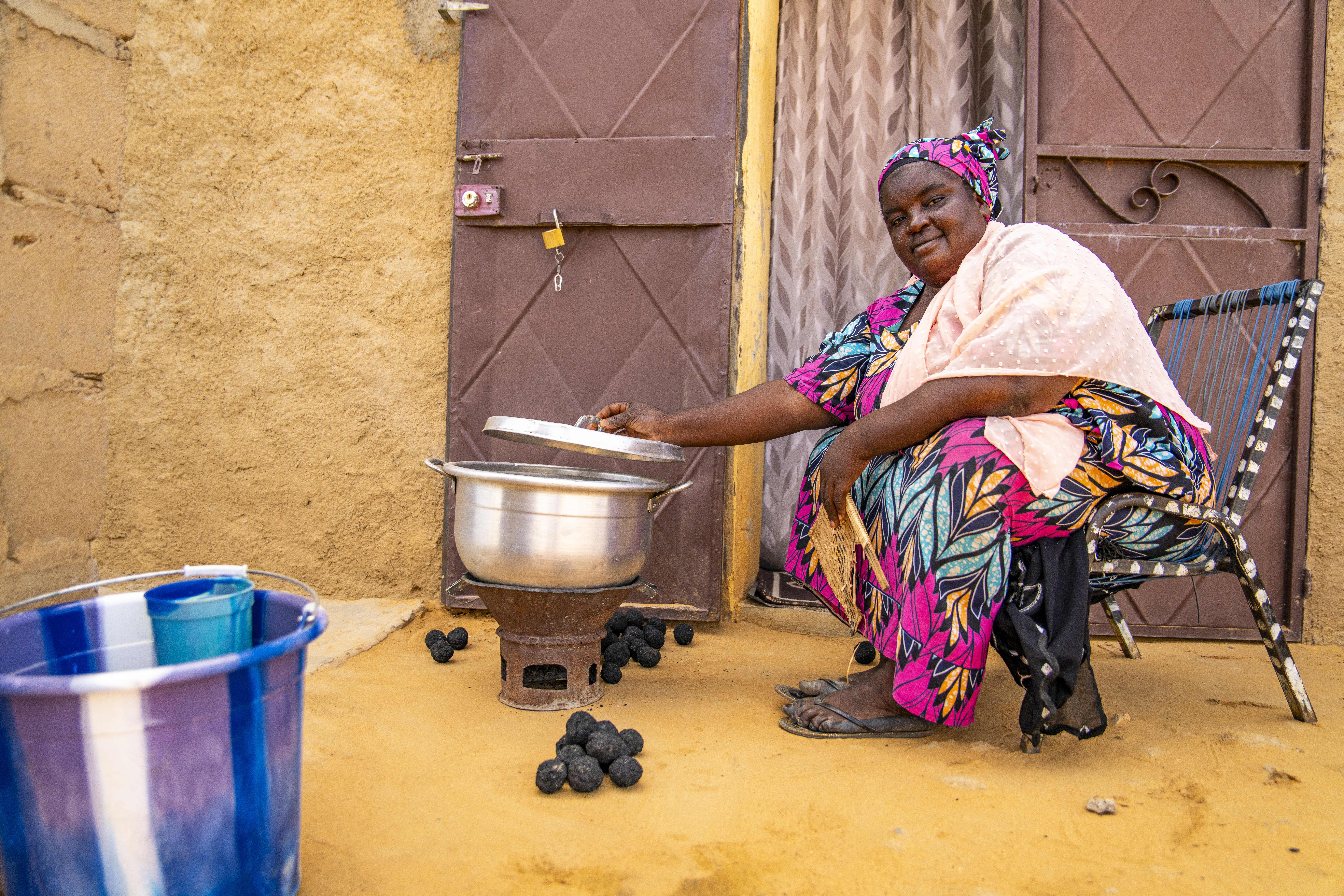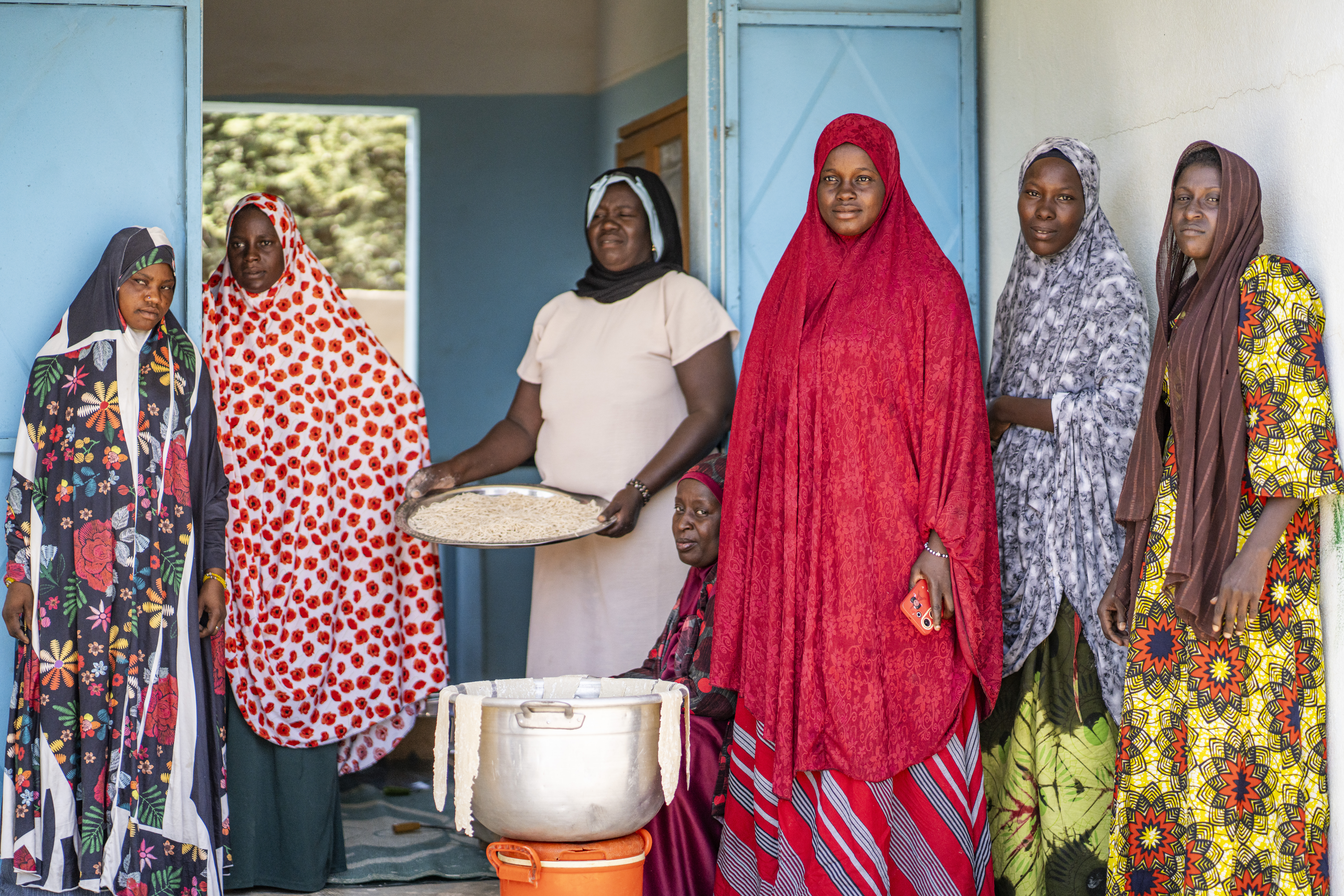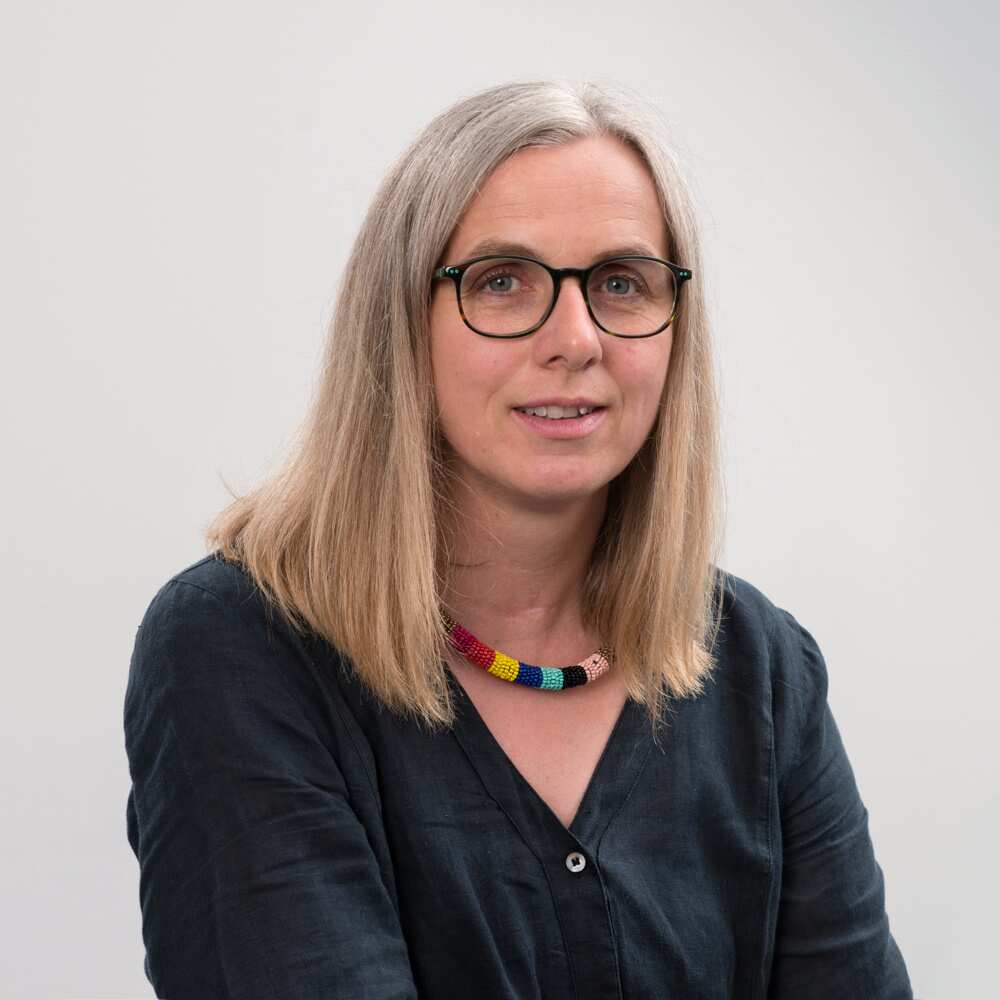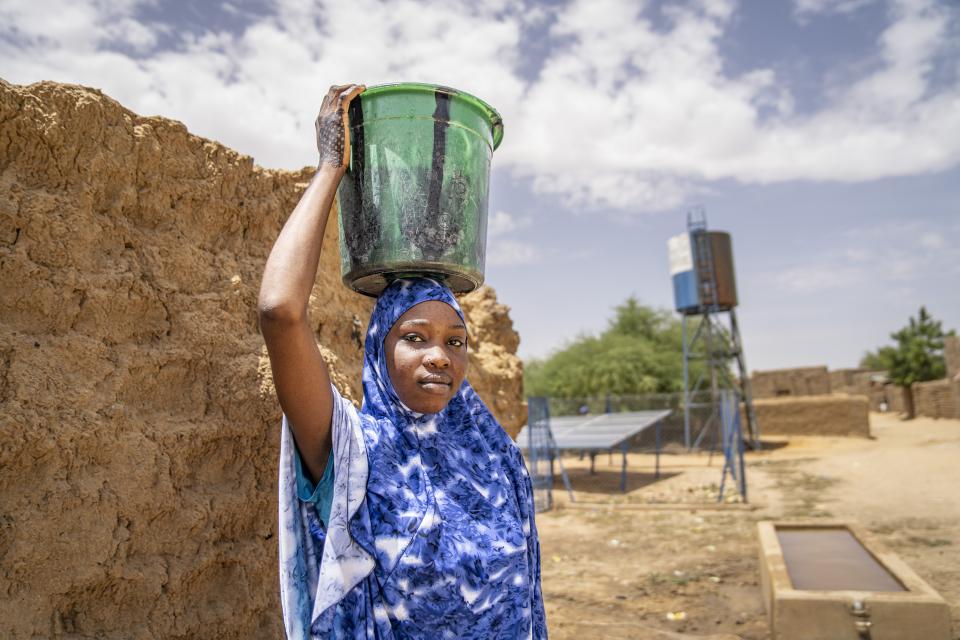
The population of the Sahelian state of Mali faces complex problems and challenges. These include an extremely unstable security situation and insufficient state capacity. Rural areas in the north of the country are particularly affected, where life revolves around the two central resources of water and pastureland. However, these are becoming increasingly scarce as a result of climate change.
Extreme weather events such as droughts and heavy rainfall destroy crops and damage livestock farming, which is already very vulnerable due to the difficult climatic conditions.
Violent clashes between Islamist groups, other criminal groups and the military are further worsening the situation for the people: theft of animals, destruction of infrastructure, criminal attacks, and kidnappings threaten everyday life. In search of safety, people are fleeing within the country's borders – and beyond. In 2024, the number of internally displaced persons in Mali stood at more than 330,000 (source: World Bank-UNHCR Joint Data Center on Forced Displacement).
The complex situation in Mali is one of the world's forgotten humanitarian crises. Violent conflicts and a lack of state infrastructure make life difficult for the people. Added to this are the effects of climate change. Around a third of the population is dependent on humanitarian aid. The goal of arche nova and our local partner organization is to bring about a long-term and sustainable improvement in the situation of the people.
Creating new prospects through water infrastructure
Water has always been a very scarce resource in the Sahel. At the same time, livestock and agriculture, the most important sources of income, depend on sufficient water. In some cases, wells must be drilled up to 700 meters deep to find water, and once built, they cannot be repaired due to a lack of capacity on the part of those responsible or a lack of equipment. At the same time, existing water sources are often shared by humans and animals, which poses a significant health risk.
Gao is one of the regions in Mali with the lowest access rate to clean drinking water. Our activities include the construction and rehabilitation of water infrastructure (wells, water sources, and livestock watering places), using solar power systems as the energy source for pumps. In this way, we are sustainably improving the basic supply of drinking water to the population and the watering of animals in rural communities in the Gao region. To ensure the sustainability of the investments, structures and capacities are being established in the participating communities to ensure the operation, maintenance, and expansion of the water supply even after the project has ended.
Improving food and income security
Livestock farming, agriculture, and fishing are the main sources of income in the project communities. However, the people are under increasing pressure. The deterioration of climatic conditions is leading to soil erosion and desertification, and there is less and less land available for cultivation and grazing. In addition, the prices of animal feed have risen dramatically. Concerns about family income and the daily meal have become a constant companion for people in this particularly poor region of Mali. Women and young people are particularly affected by the precarious living conditions.
Our project comprises various activities aimed at improving the food situation and income opportunities of the people affected. These include the establishment of community vegetable gardens and the distribution of seeds, animal feed, livestock, and operating resources. Our local partner organization also focuses on education and training. This involves veterinary knowledge and expertise in the further processing of animal products. Other income-generating measures aim to prevent climate-related crises.
Strengthening social cohesion
The region is characterized by diverse social and violent conflicts between different armed groups. In addition, tensions often arise in connection with access to land, water, and other natural resources, and are further exacerbated by the effects of climate change.
Our project aims to strengthen social cohesion through various activities. The focus is on breaking down prejudices and creating spaces for conflict resolution.
Thinking and acting across borders
Our project activities are part of a consortium project in Mali and Niger led by arche nova. We implement our activities with our long-standing local partner organization NOUVEAUX HORIZONS in Mali. In Niger, the Arbeiter-Samariter-Bund (Workers' Samaritan Federation) is responsible, working together with its long-standing partner organization ADKOUL.
The project is thus based on good cooperation on both sides of the border between Mali and Niger and reaches target groups that have a lot in common. People displaced by conflict return from one country to the other, while others settle in their places of refuge, regardless of which country they have moved to. The waters of the Niger River and climate change know no political boundaries, and family networks often cross borders as well. Last but not least, many people in the Sahel have always been nomadic, frequently crossing the border. All project activities in the consortium are therefore interlinked, and all project participants are united by the common goal of putting the population's food supply on a more stable footing and strengthening people's resilience to the consequences of climate change.
Sustainable change for the region
Sustainability and a considerate approach to climate and the environment play a central role in arche nova's projects in Mali. For example, Bagoundié now has a waste committee that takes care of the environmentally friendly disposal of household waste and implements new recycling methods. Some of the organic waste in the village is processed into charcoal, which can be used for cooking.
In order to prepare the people in the region as well as possible for the increasingly frequent extreme weather events, arche nova is working with the population to improve early warning systems and emergency plans for climate and flood risks. In addition to providing measurement technology, this also includes training courses on the prevention of climate damage and dealing with natural hazards.
Global program in 14 countries
In order to protect the ecosystem in our project regions, arche nova pursues a green humanitarian aid approach in Mali. When planning, implementing, and monitoring aid measures, we take a forward-looking, environmentally friendly approach that is adapted to the local habitat. These activities are part of a global program that we are implementing in cooperation with ASB, the German Toilet Organization, and numerous local partners. Together, we are advancing issues such as inclusion, environmental sustainability, disaster preparedness, and international knowledge transfer in a total of 14 countries.
Much has already been achieved in previous projects
We launched our first project in Mali in 2013. The starting point was the humanitarian crisis resulting from the war-like conflicts of 2012. Since then, we have been able to implement several projects in the Timbuktu and Gao regions, focusing on water, sanitation, and hygiene (WASH), as well as income security and rural development. The main areas of focus included the establishment and expansion of water supply systems and toilets in schools. Activities in the field of animal husbandry and the promotion of women's cooperatives were also successful, and we are implementing similar measures again in the current project.
Donate for this project
Project Overview
155,000 persons, including pastoral and agropastoral households, rural communities, refugees, and internally displaced persons
Water, sanitation and hygiene
- Construction and renovation of water points with solar-powered pumps
- Establishment and training of water management committees to manage and maintain water points, training of mechanics
- Training in water treatment, distribution of water treatment products
- Construction of latrines for internally displaced persons and host communities
- Distribution of sanitation kits for latrine maintenance
- Distribution of hygiene kits and dignity kits with menstrual products
- Awareness raising and knowledge transfer in the area of hygiene practices
Nutrition and income
- Distribution of food and cash, establishment of school canteens
- Construction and rehabilitation of community vegetable gardens with irrigation systems
- Training for women's cooperatives on vegetable cultivation and processing
- Training on livestock breeding, animal care and husbandry
- Distribution of materials and equipment for agriculture, pastoralism and fish farming to women's groups
- Distribution of fowl and livestock feed
- Establishment of vaccination parks for farm animals and veterinary pharmacies, implementation of vaccination campaigns
Accommodation and community
- Distribution of emergency shelter kits with tents, blankets and mattresses
- Distribution of solar lamps and household items (pots, cups, stoves)
- Inter-community exchange on non-violent conflict management in forums, implementation of peace events with young people for conflict prevention
- Training young people on the topics of peace, security, and development
Environmental and disaster risk reduction
- Restoration of wetlands, greening
- Repair of dikes to protect against flooding during heavy rainfall
- Activation and improvement of early warning systems for climate and flood risks
- Conducting climate forecasts, analyses, and disaster risk assessments
- Mobilization of local radio stations to disseminate information on extreme weather events
- Equipping communities with measuring instruments to monitor precipitation and other weather parameters
- Training courses on the prevention and management of natural hazards
- Development of emergency plans
- Establishment, training, and equipping of waste committees to improve waste management and recycling
Nouveaux Horizons
- Private Spenderinnen und Spender
- Bundesministerium für wirtschaftliche Zusammenarbeit und Entwicklung
- Auswärtiges Amt

